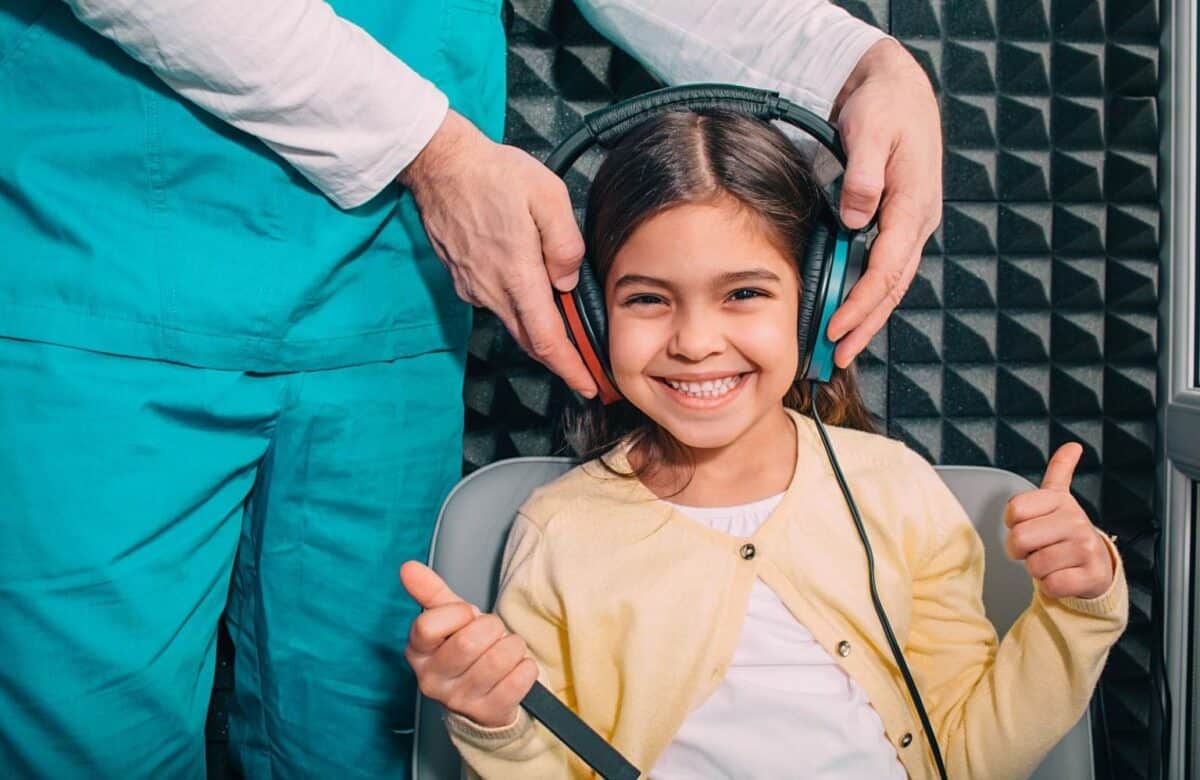The school year is just about at a close and if you are dissatisfied with how your child performed in school it is important to consider all factors. It could be a behavioral issue or a learning issue. Many times, these issues can be connected to an undiagnosed hearing loss.
The Impact of Hearing Loss in the Classroom
The classroom can provide challenges to any child, however with a hearing loss, it can be incredibly confusing and overwhelming to navigate a classroom environment. Classroom discussions and lessons can be hard to follow, and students may struggle with social connection with peers, leading to a sense of loneliness and isolation. ASHA (American Speech-Language, Hearing Association) reports that “children with a hearing loss have difficulty with all areas of academic achievement, especially reading and mathematical skills. Children with a mild to moderate hearing loss, achieve one to four grade levels lower, on average, than their peers with normal hearing, unless appropriate management occurs.” This means that as an instructor, supporting these students can take some nuance and extra care.
Understanding hearing impairments
Hearing loss and deafness are not the same thing. There are varying degrees of hearing loss you may encounter as a teacher, some impacting just the loss of some more subtle tones and pitches while others may be more severe. However, even a slight hearing impairment can impact a child’s ability to follow a lesson without the proper accommodations and support from an instructor.
Identifying a hearing impairment
A student may have a hearing impairment and not know it. In fact, this is fairly common. For this reason, it is essential that you know common signs of an undiagnosed hearing loss. It is a condition often misdiagnosed or conflated with behavioral issues or ADHD (attention-deficit/ hyperactivity disorder). However, identifying and changing how you navigate the classroom with a student with a hearing loss can set them up for increased confidence and success. Some of the most common signs of a hearing loss in younger students include:
- Not responding when their name is called
- Issues paying attention
- Behavioral issues in the classroom
- You observe that they read your lips when you speak
- Speaking too loudly or too quietly
- Observing others before following group instruction
- Delayed speech and communication development
- Mishearing or mispronouncing words
- Issues hearing in noisy settings
- Lack of classroom participation
- Difficulty with reading and linking it to speech
How does hearing impairment affect learning?
Supporting a student with a hearing impairment
If you identify a child with a hearing impairment there are several strategies to make sure that they are not left behind and have equal opportunities to learn.
Invest in classroom equipment: Devices such as a radio aid is worn by the teacher and links to an assistive listening device that the student can wear to hear better.
Dedicated attention: It may require an added teacher to help a student with hearing issues succeed.
Modified teaching techniques: Your communication style matters a lot when teaching in a classroom with someone with a hearing impairment. Make sure not to turn away from the class towards the chalkboard while speaking. You should make sure that the student is positioned in the class close to you so they can take advantage of visual cues as well.
Meet with parents regularly: For the best success, you should make sure that the learning you do in the classroom follows your student into your home. Meet with the child’s parents and develop a strategy together to ensure that they have all the tools to succeed equally at home and at school. Meeting with the parents face-to-face will enable you both to discuss any concerns you may have and track the child’s progress.
Seeking Treatment
If you suspect a child in your classroom has an untreated hearing impairment, it is important to talk to the parents and suggest the reality of hearing loss. It is important to address hearing issues as soon as possible, before it becomes a larger issue. We are here to test a child’s hearing and find solutions to set them up for success. To find out more contact us today!

